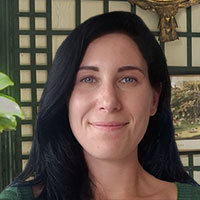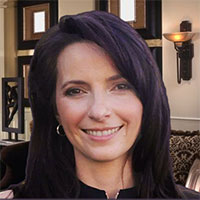 When you develop strong feelings for another person, it can be challenging to distinguish whether what you’re feeling is lust, infatuation, or the onset of true, lasting love. Although all three emotions can be intense and overwhelming, they are distinctly different from one another.
When you develop strong feelings for another person, it can be challenging to distinguish whether what you’re feeling is lust, infatuation, or the onset of true, lasting love. Although all three emotions can be intense and overwhelming, they are distinctly different from one another.
Initially, these feelings often present similarly: your heart races, you experience butterflies, you find it hard to eat or sleep, and you frequently drift into daydreams. Not to mention the exhilarating thrill you feel upon seeing their name pop up on your device!
Nevertheless, love, lust, and infatuation manifest differently on physical, mental, emotional, and spiritual levels.
Infatuation can strike unexpectedly. One day, you’re living your life, and the next, someone captures your attention. Suddenly, they dominate your thoughts. It feels exhilarating — as if something monumental is unfolding, as if it’s destiny.
Infatuation is intensely emotional, and if not kept in check, it can morph into an unhealthy obsession. You tend to idealize the person and overlook their imperfections. Although it may resemble love, it often lacks depth and consistency.
Getting swept up in the excitement is easy. However, that high may not be sustainable. Infatuation can dissipate as swiftly as it emerged, particularly when you start to perceive the individual beyond their alluring facade.
Infatuation often emerges during moments of desperation. Perhaps feelings of loneliness or a deep desire for affection lead you to project all your dreams onto someone else. You might find yourself thinking, “This person is my missing piece,” or “Everything will improve once we are together.”
However, even true love cannot resolve all your life’s issues. It’s not about locating someone to fill a gap. Authentic love occurs when two individuals feel complete and choose to be together nonetheless.
Then we have lust, which embodies mere physical attraction. And there’s nothing wrong with that! Chemistry plays a vital role! However, lust alone isn’t sufficient to cultivate a lasting relationship.
Lust is generally transient, oriented towards immediate gratification rather than emotional bonding. It can exist independently of deeper feelings or personal attachment. While it can be lively and passionate, without an emotional or spiritual bond, lust typically burns out.
While experiencing both love and lust in a relationship is possible, honesty with yourself regarding the motives driving the connection is essential.
In contrast to infatuation and lust, genuine love evolves gradually. It does not hurry or overwhelm you. It thrives on shared experiences, trust, and truly getting to know one another.
Love feels secure and stable. Instead of provoking anxiety, it calms you. It centers on supporting each other, even during inconvenient or mundane moments. Love uplifts and honors you, facilitating your growth into the best version of yourself. Real love ensures you feel acknowledged, valued, and protected, even during tough times.
Fortunately, there are spiritual techniques to cut through the confusion and gain insight. Whether you are just starting to know someone or have been tangled in a perplexing relationship for some time, these three methods can assist you in discerning the truth that your higher self already knows.
Intuitive Meditation: Tune Into Your Inner Wisdom
Your intuition is among the most powerful assets you possess regarding love. Yet, amid the tumult of new emotions, it’s easy to overlook its subtle cues. Intuitive meditation aids in tuning into your inner voice and accessing your heart’s truth.
To try it, allocate a few undisturbed moments. Close your eyes, take several deep breaths, and concentrate on the person you’re intrigued by. Next, calmly pose a few pertinent questions to yourself:
What does this connection genuinely signify?
How does my energy shift around this individual?
Does this person genuinely see me?
Do I feel authentic around them, or do I feel compelled to perform or impress?
Do they foster my growth, or do I often feel uncertain?
Avoid overanalyzing—simply observe what arises organically. When you recall them, do you feel calm and grounded or anxious and uneasy? Do they invigorate you, or do you feel drained when near them? Your body and emotions may reveal what your rational mind could be overlooking.
With practice, intuitive meditation can enhance your trust in your intuition. It centers you, allowing you to recognize whether you’re genuinely connected to the person or lost in fantasy or desire.
Divination: Let the Universe Guide You
At times, we require assistance to decipher the underlying messages. Tools for divination, such as tarot cards, oracle decks, runes, and pendulums, can offer a fresh outlook when you are too emotionally entangled in a situation.
A good tarot reading won’t merely provide answers of “yes or no” regarding your love life; it will disclose the energetic dynamics involved. Do the cards hint at illusion, temptation, or emotional fluctuations? This could imply infatuation or lust. Cards symbolizing commitment, spiritual growth, or long-term reliability might indicate a relationship with real promise.
The secret to effective divination is openness. Don’t force a specific answer; embrace the truth, even if it’s not what you wished for. Divination tools won’t make choices for you, but they can unveil what lies hidden beneath the surface.
If you’re new to divination, draw a single card and inquire, “What must I comprehend about this connection?” Allow the imagery and message to resonate with you intuitively. Alternatively, you can research the card’s meaning and reflect on its message.
Dreamwork: Access Your Subconscious Insight
When your conscious mind is overwhelmed with questions, your dreams can yield unexpected clarity. Dreams bypass logical filters and ego, instead expressing themselves through symbols, feelings, and intuitive insights. If you’re unsure about your emotions in a relationship, being mindful of your dreams can provide invaluable understanding.
Before sleeping, set an intention by asking your higher self or guides to unveil the truth regarding your connection with someone in a dream. Maintain a journal or utilize a note-taking app on your phone to jot down whatever you remember upon waking, regardless of how arbitrary or odd it may seem.
Dreams featuring someone withdrawing, vanishing, or only appearing in shadows may indicate emotional unavailability or a lack of substance. Dreams where you feel warmth, tranquility, or mutual understanding may reflect a deeper soul tie.
You don’t need to be a dream specialist to interpret your dreams; just focus on how you felt during the dream and what themes surfaced. Over time, patterns will unfold, and your subconscious will increasingly communicate with you.
Pray For Guidance. Seek Divine Affirmation
Sometimes the simplest spiritual endeavors can be the most impactful. If you’re feeling stagnant or unsure, attempt to ask your higher power — whether referred to as Spirit, Source, God, or the Divine — to provide you clear signs about your romantic connection.
Signs can often emerge in surprising forms and may not always be overt. Sometimes, the lack of a sign serves as an answer itself. Patience and faith are essential.
Signs may manifest through intuition, recurring motifs, or even conversations with others. They can also appear as synchronicities—meaningful coincidences that feel too aligned to be arbitrary. These gentle nudges from the universe help steer you back to your truth. Signs might come in the form of a song lyric, a fortuitous meeting, or a symbol emerging in an unexpected context. They provide comfort or subtle redirection.
Asking for signs is a deeply personal act. Regardless of your approach, enter your prayer with an open and welcoming mindset, accompanied by gratitude.
If you’re new to prayer, here’s a simple, sincere prayer that you can use or modify to suit your beliefs and needs:
Dear God,
Today, I seek your guidance and clarity.
I humbly and faithfully ask for a sign of confirmation. Please provide me with a clear indication, in a way that only I can recognize and comprehend, that I am on the right path concerning this relationship or that this is indeed the right person for me.
Assist me in being attentive and receptive to your message. Quiet the noise within and around me so I can truly discern your gentle guidance.
I trust your divine wisdom and perfect timing. Grant me the patience to await your sign and the courage to follow where you lead.
Thank you for your unwavering love and for always being present with me.
Amen.
The more you have faith in this process, the clearer the signs will become. Seeking guidance is an act of surrender that opens the door to authentic spiritual insight.
Psychic Reading: Gain The Broader Perspective
Occasionally, you might require an external viewpoint that transcends superficial details, delving into the deeper dynamics of your connection. That’s where a credible psychic or medium can be instrumental.
Sometimes, you meet someone and feel an immediate connection. It’s as though you’ve known them forever, and no matter how much time passes, you can’t seem to get them off your mind. This might go beyond mere chemistry; it could indicate a past-life bond or soul contract.
A skilled reader can tap into the energy flowing between you and another individual to clarify what’s genuinely taking place. Is this a soulmate? A karmic link? Or merely a fleeting encounter? An adept psychic can assist you in understanding the purpose of this person’s presence in your life and whether the connection is likely to endure.
Such spiritual ties frequently emerge during psychic readings. While these connections might not always be everlasting, they hold significance. They may teach us something, facilitate healing, or enable us to break free from old patterns.
Having a profound connection does not automatically signify it’s true love, but it might be a component of your soul’s journey. Sometimes, what we perceive as love can actually mirror our own personal growth. Other times, it truly is the beginning of something beautiful. A reading can help clarify this distinction.
Collaborate with a psychic who possesses strong ethics, clear communication, and a grounded, balanced demeanor. A commendable reading will empower you with clarity and insight; it will never frighten you or attempt to sell you additional services.
Love doesn’t always arrive with grand displays or dramatic gestures. Sometimes it presents itself subtly — in how someone listens to you, supports your aspirations, or creates a sense of safety for you to be your true self.
Infatuation diminishes. Lust subsides. But love? Love remains. It deepens over time, evolving into something solid that you can rely on.
Hence, take your time. Trust your instincts. If something feels awry, pay attention. If it feels genuine, allow it the space to flourish.
Ultimately, true love does not merely ignite you with joy — it provides certainty and inner tranquility. True love creates a safe haven.
|
 About The Author: Andrea Grace About The Author: Andrea Grace
A Psychic, Medium, and Paranormal Investigator residing in New Jersey, Andrea has been a prominent internet psychic for many years. She was born with unique psychic abilities that set her apart in her family. At age 17, she experienced a devastating car accident and recalls traversing to the other side, describing its beauty beyond comprehension. She received last rites but returned with significantly enhanced gifts–a blessing she cherishes to this day. It became her calling to remain here to assist people, and this has been her mission ever since! Her skill in guiding clients through past life recollections has enabled many to understand their future paths. With the guidance of her Spirit Guides and Angels, she provides clarity on any matter, always respecting her clients while offering honest insights. If you’re looking for an accurate reading with a compassionate, kind, and precise Psychic and Medium, you can find Andrea at PsychicAccess.com.
|
Love, lust, and infatuation are three emotions that are often intertwined, yet they are distinctly different. Grasping the nuances between these feelings can aid individuals in effectively navigating their relationships and making educated choices regarding their romantic lives.
Love is a profound, lasting emotion characterized by a deep bond, trust, and commitment to another individual. It involves genuine care and concern for the other’s well-being and a willingness to support and nurture them through challenges. Love is frequently seen as a selfless, unconditional emotion in which the happiness and welfare of the other person take precedence over one’s own desires.
Lust, conversely, is a more primal and physical emotion rooted in a strong desire for sexual fulfillment. It is often marked by a compelling physical attraction to another person and a wish to engage intimately with them. Lust typically prioritizes physical elements of a relationship over emotional or intellectual connections.
Infatuation embodies intense attraction and obsession towards another person, often based more on superficial traits or idealized views. Infatuation can be consuming and intense but often has a short lifespan, with excitement dwindling once the initial thrill fades. Usually lacking depth or emotional ties, infatuation may revolve more around fantasy or projection than actual understanding of the other person.
How can you tell apart love, lust, and infatuation in your personal relationships? Here are a few essential aspects to consider:
1. Emotional depth: Love showcases a profound emotional connection and significant care for the other party. Lust and infatuation, however, may fixate more on physical attraction or superficial qualities.
2. Duration: Love is a persistent, enduring emotion that intensifies over time, while lust and infatuation may be fleeting and transient.
3. Selflessness: Love is typically seen as a selfless sentiment, prioritizing the needs and happiness of the other over personal wants. Lust and infatuation can be more self-serving and focused on one’s own satisfaction.
4. Connection depth: Love indicates a meaningful bond with another person, whereas lust and infatuation may be rooted in superficial attributes.
By recognizing the distinctions between love, lust, and infatuation, individuals can make informed choices regarding their relationships and foster strong, healthy connections with their partners. Love encompasses a profound and enduring emotion defined by strong ties, trust, and commitment to another person, while lust is a more physical desire focused on sexual satisfaction. Infatuation signifies intense attraction towards someone, often based on shallow qualities or idealized perceptions of that person. Continue reading →

















